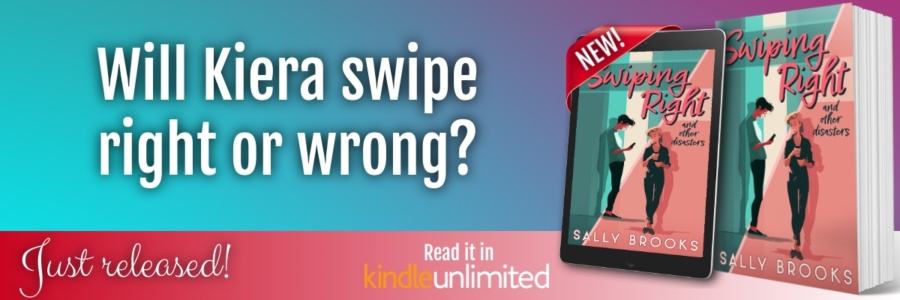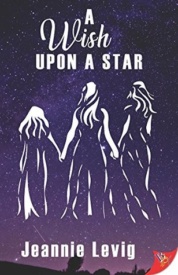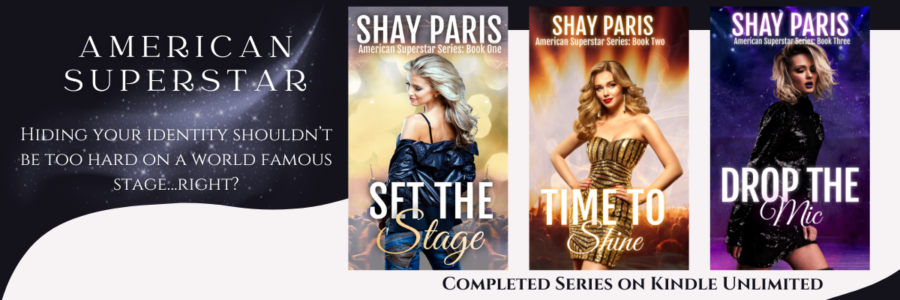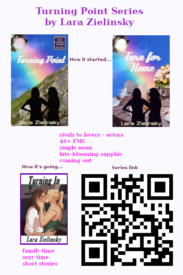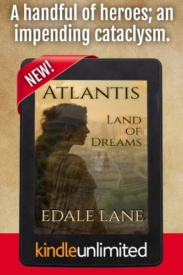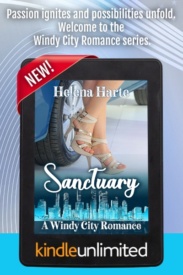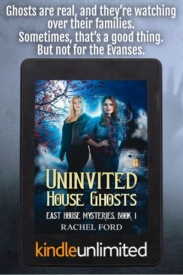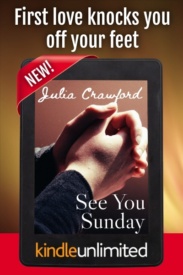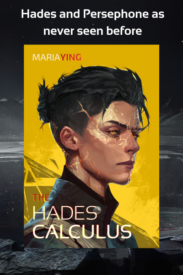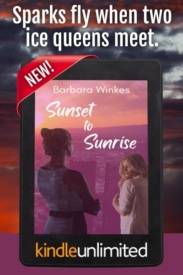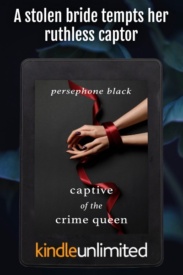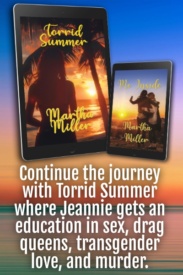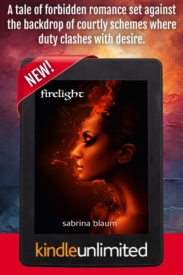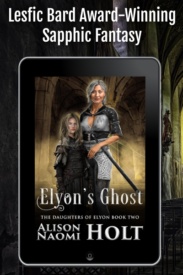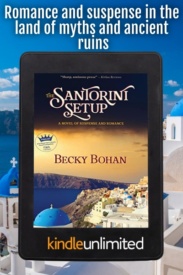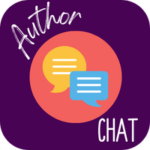
Get ready to learn more about the book A Wish Upon A Star in this discussion with sapphic author Jeannie Levig.
Join us for an exclusive peek behind the scenes as we quiz Jeannie Levig about A Wish Upon A Star, writing, reading, and more.
This book is part of the Love After 40 category in the 2024 IHS Reading Challenge.
Why did you write A Wish Upon A Star?
A Wish Upon A Star is a contemporary sapphic romance, so of course its main story is one of romantic love between two women. Two of my previous four books had been traditional romances, which A Wish Upon A Star is too, but with this one, I wanted to broaden the scope of the lover story by including a different form of love as well. Leslie and Erica, the main characters, both are lonely and feel isolated, Leslie having lost the family she’d thought she’d built and Erica struggling with the demands of being a single mom of her seven-year-old daughter with special needs, Siena. When they meet, they might have ended up merely a one-night stand, but Siena and Gus, a scruffy, stray dog Leslie picked up on her way across the country to return to her childhood home, insist on making them all a family.
I find family love, in all its various forms, to be one of the most potentially powerful forces in life. Whether it’s blood family or chosen family, I think the connections that form are some of the strongest. As much as I love romantic love, both in books and life, sometimes it can come with an at-stakeness and a fear of losing it that can hinder the lovers’ ability to be completely honest about some things—not all people, of course, but some, so don’t skewer me on this. LOL! I’ve found that in family relationships, again blood or chosen, the depth of connections can transcend a fear of loss. And yes, of course, lovers can develop that depth as well, which in my thinking is what moves them from lovers to family to each other. Disclaimer: Yes, I do understand that some blood families are horrid and anything but loving. I’m speaking more generically here and of the kind of family love that drew me to write A Wish Upon A Star.
I wanted to write a story of transformation in which a couple not only breaks through their fears and resistance to fall in love and become lovers but also to form that connection to become a true family in which they can trust. And what better accomplices could there be than an adorable dog and a child on the autism spectrum with no filters to show them how to do it.
Who is your favorite character in the book?
My favorite character in A Wish Upon A Star is Siena, and I love her exactly because she has no filters. Whatever she’s thinking just comes out of her mouth, and it made writing her so fun and freeing. I also love how instantly she connects with people—or doesn’t—and how the minute she meet Gus, she names him and makes him hers. For his part, Gus divides his time, attention, and affection between Siena and Leslie, but he immediately knows Siena is his as well.
Siena is the character, of all I’ve written, who I wrote the most intuitively. I did some research on autism ahead of time, but she came to the story late in the development stage, so when it came time to write, I just started writing her. She’s a secondary character, but a very primary one, and she appears in major ways in almost every chapter. When she popped up in only the second paragraph of Chapter One, I just went with it and typed whatever came within the context of the scene. I was captivated by her. She made me laugh and cry and gave me some things to think about. The scene in which she sings her mother, Erica, a song she wrote for Erica’s birthday brought me to tears. For all of her appearances in the book, however, her main role is to bring the main characters together and keep them engaged with each other through their connection to her long enough for them to realize they’ve fallen in love, and she does her job well.
As for whether or not she and I are similar, not in big ways. I’m not on the spectrum and haven’t had much experience with anyone who is, but we do share some quirks that my sensitivity reader for the autism element of the story told me were right on target in terms of writing Siena. For example, in the opening chapter, Siena’s excited about Leslie watering a super dry spot on the lawn because she loves the smell of water on really dry grass. I’ve always loved that smell too, and it just came up as I was writing the scene so I threw it in. I also love Winnie the Pooh and his friends, so I gave them a couple of cameos in the book as important anchors to Siena. There are others, but I’d rather you have your own experience with them when you read the book.
How did you come up with the title for your book?
The title, A Wish Upon A Star, was inspired by the poem, “Star Light, Star Bright.” In the story, Leslie teaches Siena the rhyme and tells her the adage that if someone recites the poem at the first sight of the first star of the evening, then makes a wish, the wish will come true. As a child, I loved lying on my back on the lawn at dusk, searching the sky for that first star of the evening so I could make my wish. I always had one ready. I used the idea for the title because this is a book filled with the wishes of the characters.
I enjoy putting tidbits from my life and childhood into my stories, assigning them to the characters and scenes they fit with the most. It’s a way of reliving the memories of them myself as well as passing the joy, or sometimes sorrow, of them along to my readers as a way of keeping them alive.
How much research did you need to do for A Wish Upon A Star?
I had to do more research on this book than on any of my titles before it but not nearly as much as I’ve had to do for my current work in progress. For A Wish Upon A Star, I needed to research autism, which was fairly indepth but also very interesting. I read a couple of books about it, watched some documentaries and a couple of shows and movies, and found some blogs to follow. I found I needed to learn about autism itself and put together some traits and behaviors that would make sense for Siena, but largely I discovered that there isn’t any one way that people on the spectrum present. That was freeing and daunting at the same time.
I also followed a couple of blogs for a while written by mothers of children on the spectrum in order to authentically write Erica’s character. I wanted to be able to convey the emotional aspects of parenting a child with autism.
The real goldmine came when I met a woman online who not only had a daughter on the spectrum but also worked with children with autism. She agreed to serve as my content expert and sensitivity reader on the project. It was great having her with me as I actually wrote the book rather than finishing the project and then sending it to her. I gave her each chapter when I completed it, and she’d send it back with suggestions and comments, that way I could fix anything that needed fixing right away and not continue down any wayward paths. She was instrumental in the process, and I’ll always be grateful to her for how the book turned out.
Where do you usually write, and what do you need in your writing space to help you stay focused?
My workspace is in the corner of my bedroom, and I write exclusively there. The area contains my desk with a desktop compputer, a small bookshelf that holds my writing reference books, and a printer table with a magnification machine on it as I’m partially sighted and need it to read anything in print. This little nook has been my writing home for many years, and all of my sapphic novels have been written in this space. It’s a very comforting place for me, most of the time.
There are two things I like having in my writing space, though I don’t know that they’re necessary. First is my music device for when I want that inspiration or relaxation. I don’t always listen to music when I write, but when I do, it needs to be instrumental, specifically piano, and I have a Mozart playlist that I love. The higher vibration of classical music really settles me into a nice writing zone so it’s easier for me to get on a roll. I also have a little beanbag frog that’s sat at the base of my monitor for many years, and he inspires me when I get stuck. My daughter gave him to me long ago, and I was sitting at my computer when she did. I just set him on the base of my monitor afterward, and that’s been his home ever since, even with the comings and goings of new monitors, a move to a new house, and a few near misses when a cat or a grandchild tried to carry him off. He’s very special to me for all the writing he’s done with me and because he was a gift from my daughter.
Do you have a pet who helps/hinders your typing?
I have a cockatiel named Bentley Sinclair who lives in my bedroom in the winter because it gets too chilly in the living room. (Yes, I live in California. Yes, I know we’re all babies.) He is twenty-three years old and kind of crotchety and set in his ways. The reason he’s been banished to the living room during the spring and summer is that when I’m writing and he wants attention, he starts screeching at me. I can take it for a while, but eventually I have to either cover him, move him, or surrender to him and let him out. I suffer from pet-mom guilt when I just cover or move him right off, so we usually start with the latter.
When he’s out, he walks around on my desk, chattering at me and pecking at things. If there’s music playing through the speakers or if the computer’s reading a section of text out loud, he cuddles up real close to the speaker—not sure what that’s about. Eventually, though, just being near me isn’t enough anymore, and he starts jumping onto my keyboard. He isn’t heavy enough to strike a letter every time, so I have to watch carefully and delete any random additions he makes. Finally, when I get tired of it all, I put him back in his cage, and we start all over again.
I’ll leave it up to you. Is he helping or hindering?
Do you feel bad putting your characters through the wringer?
I don’t usually feel bad putting my characters through the wringer because, generally speaking, I think it makes the story more realistic. I know this doesn’t work for readers who want escapism, but my books deal with challenges that could, and maybe have, happened to many of us. I’ve noticed that a lot of the growth many of us manage is done through challenge and pain. I’m not saying it needs to be. We can certainly grow in peace and joy. It’s just that many times we wait to do the work to grow in a certain way or area until the pain of staying where we are gets bad enough for us to stop and take the time to do what we need to do in order to facilitate the needed growth. Characters in books can’t really be much different, considering they have to change over the course of the story in order to be compelling and satisfying to most readers. As a reader, I love being allowed to witness one of those moments when a character I’ve been rooting for finally gets what she needs to do for things to be different in her life. And as a writer, I love being able to give that to my readers.
There’s been only one time when I felt particularly bad about what I had to do to a character. It was in the very first novel I wrote. Not the first of my published titles, but one that was never published and likely never will be as I wrote it for the mainstream market, and I’m no longer following that path. It’s called By the Waters of Acheron, and it has three main characters kind of in a love triangle, one of whom is hellbent on avenging her sister’s murder while the other two are trying to keep her alive. Long story short…they fail. But I didn’t know that as I was writing the book.
When I got almost to the end and realized what was coming, I tried and tried to keep her alive. I went back through the story, hoping to be able to shift the plot points this way or that. I wrote a couple of different endings where she lived, only to have to admit they didn’t work, didn’t fit the story. Finally, I had to just write what happened and let her go. I cried so hard. Later, when I read back through the completed manuscript, I found a scene I’d forgotten about in which one of the other characters asked her what she planned to do after she got her revenge, and she said, “There is no after,” and I realized the ending was there all along. I just hadn’t realized what her answer meant.
Have you ever hated one of your characters?
I don’t think I’ve ever hated one of my characters because by the time I write a character, even one that the readers are supposed to hate, I understand them and why they do the things they do. That said, I’ve written a couple of characters the readers are supposed to hate that scared me because I understood them and could maybe see myself doing some of those things in similar circumstances.
Both do the same thing, only in different ways. They mess with people, with their lives, their hearts, their loved ones. The first is in the book I talked about in the previous question, By the Waters of Acheron, and he’s definitely the villain in the story. He’s the one who killed one of the main character’s sister and set the main character on her self-destructive quest for revenge. The second is in my debut sapphic novel, Threads of the Heart. She’s also the villain of the book, I suppose, and she flits through life seducing whoever she pleases, not caring who gets hurt or whose life she burns to rubble in her wake. I see these characters as very similar in that they both abuse the power they have, one in terms of taking lives, figuratively and literally, the other wielding her sexual power and allure over those who succumb to it, for no other reason than she can.
As I said, what scared me about these characters was that I did understand them. I could see how tempting that level of power might be. I could maybe, if only in my mind, see myself doing some of the things they did. Now, I wrote both of those characters a long time ago, and at this point in my life, I know I wouldn’t do those things, but the experience taught me to really look at my characters, not only as fictional characters but as parts of myself. And as I’ve done that, it’s sometimes led me to some growth and evolvement that might’ve taken much longer for me to get to and required a lot more pain before I did. From this revelation, I developed a workshop called Fiction Writing for Personal Healing and Growth. I’ve taught it a couple of times, and it’s been fun and revealing for many of the participants.
What book do you wish you had written?
Wow, there are so very many fabulous books in the world, and I’ve read a lot that at the end I said, “I wish I’d written that.” It’s hard to choose just one. But one that does stand out for me as I’m thinking about it tonight is my favorite book of one of my favorite authors—Magic Hour by Kristin Hannah. For those of you who don’t know her work, she’s a fantastic writer of women’s fiction with many of her titles focusing on female relationships. Not sapphic but sisters, mother/daughter, best friends, etc. She also has written some hetero romance, so definitely read the blurbs carefully when you’re looking through her substantive backlist, unless of course you enjoy hetero romance.
Magic Hour is the story of child psychiatrist Dr. Julia Cates who returns home in answer to a call for help from her estranged sister, the sheriff in their hometown in Washington state. A small girl and a wolf pup have emerged from the dark forests and appeared in town, the child filthy, malnourished, nonverbal, and terrified, the pup snarling and protective. The story of Julia’s work with the little girl she calls Alice reveals the power of love with unfathomable depth in a way I’ve never seen before in a story. It’s heartwrenching and so healing at the same time. In addition to the unraveling of Alice’s mysterious past, there’s also the healing between the sisters and a very tiny romance that I, of course, would turn into sapphic love in a retelling if that were something I did. And, as always, Hannah’s writing is exquisite.
It’s a phenomenal read that I recommend highly.
Have you ever thought you’d hate a book, but ended up loving it?
I initially really dragged my feet for several years before giving The Seven Husbands of Evelyn Hugo by Taylor Jenkins Reid a shot. I hated the title and couldn’t see how I’d find anything interesting in the story if the title was indicative of what was on the pages. I’m not even sure what changed my mind. Maybe just seeing it for the thousandth time? But I’m so glad I did. It’s now on my all-time favorite reads list, my reread list and I’ve already read it five more times since the first, and I recommend it to anyone who’ll listen.
What changed my mind about it when I read it? Absolutely everything. The story, which really does have seven husbands in it, most of whom are inconsequential, but only one “love of her life” who unsurprisingly now, is not a husband at all. I love the dual storylines and the mysterious connection between Evelyn and the journalist she’s giving her long-awaited story to. And then, of course, with me, any favorite book of mine will almost always come down to a fantastic writing style. I found a new favorite author in Taylor Jenkins Reid a0nd loved her next two books, Malibu Rising and Carrie Soto Is Back. Both excellent, though non-sapphic.


